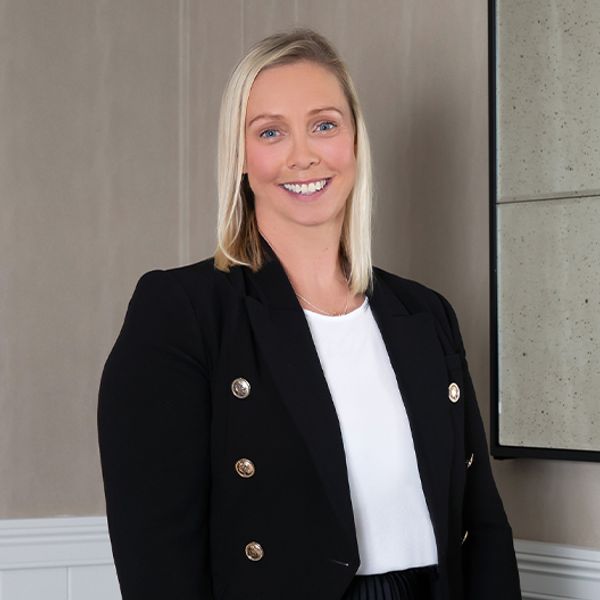
What are the upfront and hidden costs of buying a property?
When it comes to buying a home, many people, especially first-time buyers, only consider their home loan deposit and the purchase price of the property without factoring in the multitude of other expenses, small and large, that are involved in becoming a property owner.
This can lead to unpleasant and sometimes very expensive surprises, so in this short article, we’d like to walk you through what are often referred to as the “hidden” costs of buying a property in NSW to provide you with a comprehensive guide to help you budget as you move towards owning your own home.
Home loan fees
Besides paying the interest on your home loan over its lifetime, you will also face some upfront costs, which may vary depending on your loan and your lender. Make sure you ask your broker or your financial institution for all the information before you sign on the dotted line. Here are some of the things you may be charged for:
Home loan application fee (estimated cost: $500 - $1000)
This is a one-off fee that you pay your lender for setting up the loan. It will differ according to the type and size of the loan and may also vary if you use a mortgage broker. Some institutions may waive this fee under certain circumstances. Valuation fee (estimated cost: $200 - $300)
This fee may be included in your loan application fee. A formal valuation is required by most lenders to ensure that if you default on the mortgage, they will recover the amount they lent you by selling the property.
Lender’s mortgage insurance (LMI) (estimated cost: over $10,000)
Lenders charge you for an insurance policy to protect them if you borrow more than 80% of the purchase price of a property. The amount they charge will vary depending on the loan and the institution, but to give you an idea, the estimated LMI on an $850,000 loan for a $1,000,000 dollar property could be anywhere from $11,500 to $15,000. If you are not a first-time buyer, you will also pay stamp duty on the LMI.
Mortgage service fees (estimated cost: $250 - $450 per year)
Although some lenders won’t charge service costs, others do, so you should check with your lender and plan accordingly.
What are the Government fees when buying a house or apartment?
Mortgage registration fee (estimated cost: $150)
The state government will charge a registration fee. A mortgage must be registered so that a borrower cannot legally sell a property without paying back the lender.
Transfer registration (estimated cost: $150)
The state government will also charge you a fee to register the transfer of property ownership to your name.
Transfer duty; previously known as Stamp duty (estimated cost $40,000 on a $1 million property)
It’s impossible to give ballpark estimates for this fee as it varies wildly depending on your circumstances and the purchase price or current market value of your property.
Revenue NSW provides the following guide for calculating transfer duty:
Source: https://www.revenue.nsw.gov.au/taxes-duties-levies-royalties/transfer-duty
As of 2022, first home buyers in NSW who purchase a property of up to $1.5 million will have the option to pay an annual property tax instead of transfer duty.
There is also a premium transfer duty for residential properties costing over $3 million.
Inspections and report costs when buying a property
Though not strictly necessary, it’s highly advisable to have professional inspections carried out before you buy a property for your own peace of mind and, in some cases, to help with your loan application.
Building inspection (estimated cost: $400 - $1200)
A building inspection, carried out by a qualified professional, will provide you with a report of the property’s condition, including any significant defects or problems with the building and site, such as rising damp or structural defects. Ask your inspector to check for pest damage, too.
Pest inspection (estimated cost: $150 - $300)
While a building inspection can identify existing damage by pests, a qualified pest inspector will determine if your property still has termites or other pests that may affect the structural integrity of the building.
Strata report (estimated cost: $250 - $350)
As part of your due diligence, you may want to get a strata report to ensure that the body corporate of the building you are buying into is in good financial condition and to find out if there are any upcoming major expenditures.
Survey report (estimated cost $400 - $700)
Lenders may ask you for a survey report, which shows the boundaries of the property that you are buying and the location of any buildings within that property.
Conveyancing and legal fees when buying a home?
Although it is possible to do your own conveyancing, having a conveyancer or a solicitor to help you with the complex legal processes involved in purchasing property can mean a smoother, less worrisome experience.
These professionals will prepare, exchange, and complete your contracts as well as paying a number of expenses on your behalf, which they will then (of course) charge you with. These include title searches, local council certificates, and other disbursements.
Fees for these services vary enormously, generally costing anywhere from $700 to $2500, depending on your professional, the property, and the complexity of the exchange.
Home insurance costs when buying a house or apartment
Home building insurance (estimated cost $220 - $1000)
Although the seller is technically responsible for a property until the date of settlement, you may consider getting property insurance as soon as you exchange contracts. In some cases, your lender might require you to do so.
There are two types of home building insurance available: replacement cover, which does not take depreciation into account, and indemnity cover, which does.
Council and water rates when buying a property
The seller will usually pay both of these up to settlement. Any portion of the rating period that remains after settlement will need to be paid by the new owner. A special water meter reading may be taken at settlement.
Other post- purchase costs to consider when buying a property
With your focus on the actual purchase of your new home, it can be easy to forget to budget for some ongoing and practical expenses. Remember to set aside money for:
Utilities (estimated cost: $250 - $600)
Electricity, gas, NBN, and telephone lines may need reconnecting.
Removalists (estimated costs: $1000 - $5000)
Depending on several factors, including volume, stairs, and dates, you could end up paying a lot more than you expected for removalists. Get a few quotes before you lock in your movers.
Strata fees (estimated costs: 0.3% - 1.2% of the property value)
If you are buying into a strata property, you will need to budget for your quarterly or annual levy.
Summing up
There are a lot of expenses associated with buying a house. Being prepared for them will help you budget carefully to make sure you have enough cash to meet your obligations and transition into your new home as smoothly as possible.
Always consult your accountant or financial advisor before making any serious commitments, and check with your legal advisor and lender about the specific requirements for your property.
Other buying, selling and investing articles and resources
Guide to property investment success in NSW
Selling a house or apartment in NSW eBook
Buying a house or apartment in NSW eBook
Was this content helpful to you?





